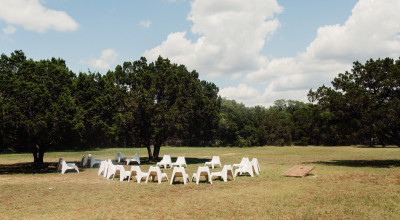Ethical Standards for Addiction Treatment
November 20th, 2023
By P. Casey Arrillaga, LCSW, LCDC
At Windmill Wellness Ranch, we are always striving to give clients and their families the highest standard of care. It’s one of the reasons we have been independently verified as one of the most effective treatment centers in the country. As good as this feels for us, it’s not enough. We would rather see everyone else hit those same standards than be the best simply because others are not doing as well. Therefore, we want to tell everyone how we do it, so that clients and their families know what to look for and what they are getting if they come to us, but also so other treatment providers can look for ways to join us at the top. Therefore, in this post, we are going to present the standards that we use to measure our own performance in an effort to raise the entire industry.
What We Know So Far
Addiction treatment can be like the Wild West sometimes, with various states and counties having their own standards for licensing (if any) for both the center and those who work there. An elite group called The Society for Ethical Addiction Treatment has formed to establish a set of universal standards for addiction treatment. Among other key players across the industry, our founder and CEO, Shannon Malish, was asked to join to give the perspective of direct-care treatment providers. This was based on her forward-thinking approach, her deep experience running addiction treatment centers, and the success of Windmill. Success in this case was not measured in money, it was measured in client outcomes.
Based on talking with Shannon, here are the guidelines that shape Windmill’s approach, which we are presenting to the elite group as proposed standards for anyone running a treatment program. Everything you see here is something that is put into practice every day at Windmill.
Standards for Ethical SUD Treatment
1. The treatment program must follow the law.
a. Full compliance with federal, state, and local regulations.
b. Licensed for the care provided and stays within the scope of that license.
2. The treatment program must be accountable.
a. Clear reporting and grievance procedures available to clients.
b. Is accredited (e.g., Joint Commission or similar professional accreditation organization). (Windmill is Joint Commission accredited).
c. Outcomes are measured by a “blind” third party (e.g., Trac9). (Windmill outcomes are measured by Trac9).
3. The treatment program must have and follow clear internal guidelines.
a. Has clear Policy and Procedures that are put into use.
b. Uses a recognized code of ethics (e.g., National Association of Social Workers Code of Ethics). (Windmill uses the NASW Code of Ethics).
c. Has a set of core values that are known to and demonstrated by staff.
4. The treatment program must offer skilled therapy.
a. All clinicians have a master’s degree or higher.
b. All staff are trained in and demonstrate trauma-sensitive care.
c. Minimum of three trauma-healing modalities are offered (e.g., EMDR, IFS, CPT, etc.).
d. The clinical team uses validated psychometric tools to help guide care.
e. At least half of educational classes are taught by staff with master’s degree or higher.
5. The treatment program must include readily-available medical care.
a. Has full-time prescribing staff (e.g., MD, NP, etc.).
b. Prescribing staff see each client weekly at a minimum while in detox, residential, and PHP levels of care, monthly minimum while in IOP.
c. Has 24/7 nursing staff on site.
6. The treatment program must demonstrate interdisciplinary coordination.
a. Each client is seen weekly minimum by both therapist and prescriber. (Windmill clients are seen twice per week minimum by therapist, once weekly minimum by prescriber, and once weekly minimum by recovery coach.)
b. Therapists and prescribers meet to coordinate care every two weeks minimum, weekly preferred. (Windmill therapists and prescribers meet at least once per week to coordinate care).
7. The treatment program must empower its clients with choices.
a. Length-of-stay and level of care decisions are driven by individual client need (e.g., not by insurance company).
b. Treatment plans and assignments are individualized.
c. Has a client handbook that is reviewed with all clients.
d. At least two recovery fellowships are offered (e.g., AA & SMART Recovery). (Windmill offers AA and SMART, with additional meetings/classes for NA and SLAA).
8. The treatment program must offer options to include family.
a. Offers family programming (e.g., family group education and therapy). (Windmill has both a weekly family workshop and weekly SMART Recovery Family & Friends meeting).
b. Offers family sessions.
9. The treatment program must offer options for aftercare.
a. Connect clients to vetted sober living options, therapist referrals, recovery fellowship meeting lists, etc.
b. Offers follow-up outreach calls to alumni.
c. Offers alumni meetings, activities, or the like. (Windmill has a weekly alumni meeting as well as alumni gatherings and celebrations).
The Bottom Line
If you are looking for the best treatment possible for you or a loved one, look for a treatment center with the highest standards, and that has the best outcomes as a result. Ask if they hit all the guidelines listed above, so you can make an informed decision that can pay off for the rest of your life.
About The Author
P. Casey Arrillaga is the Team Leader for Education at Windmill Wellness Ranch, and he is the author of books including “Realistic Hope: The Family Survival Guide for Facing Alcoholism and Other Addictions”. His book


